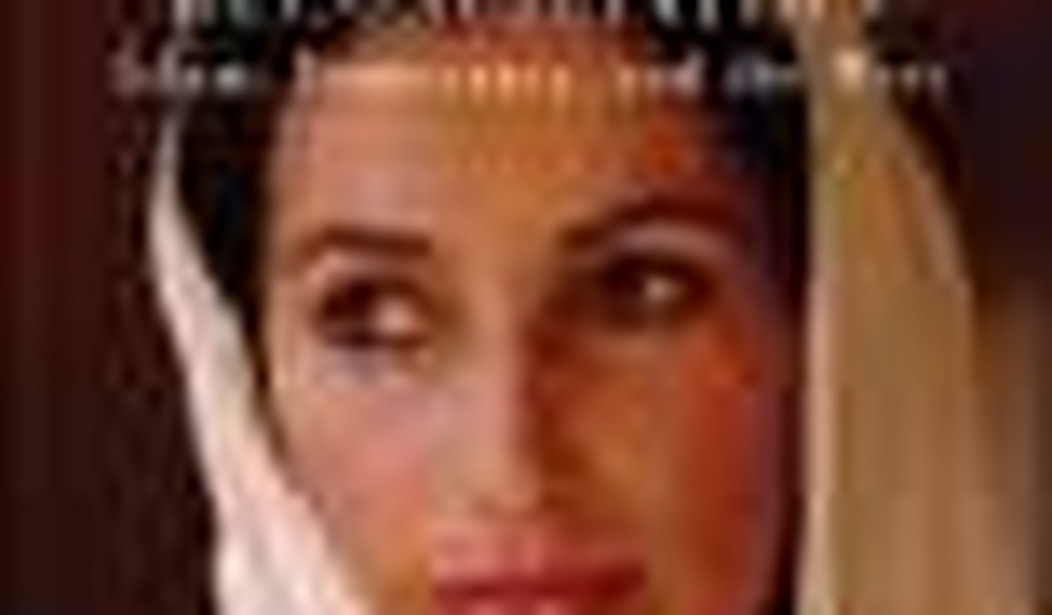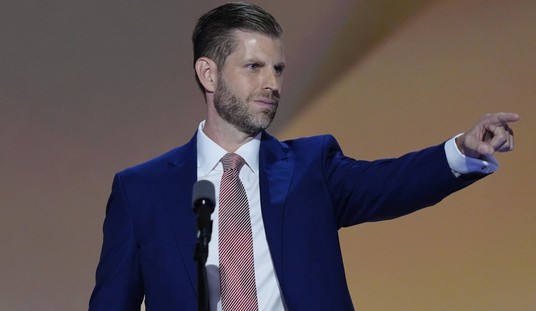Benazir Bhutto, head of Pakistan’s People Party, former prime minister, and the first woman to lead a Muslim nation, was assassinated on December 27, 2007. She was campaigning for Pakistan’s first parliamentary elections in nearly a decade. The bombing-and-shooting in the city of Rawalpindi that killed her and 30 other people was the second attack in two months directed at her. The first one, carried out in Karachi, had missed her but left 150 people dead. Ms. Bhutto started writing her book, %%AMAZON=0061567582 Reconciliation: Islam, Democracy and the West%%, before the first attack, and finished it sometime before the attack that killed her.
Steeped in Spengler, Toynbee, Lewis, Huntington and Walt, the book is directed almost entirely to Western leaders and intellectuals. It is the culminating point of Ms. Bhutto’s seven year long lecture series — otherwise known as exile — in the West.
The book attempts to show that there is a direct relationship between Islamic extremism and Western supported dictators. It ameliorates the fear that Muslims (specifically Pakistanis) who take to the ballot will vote for extremists. It concludes by setting forth various institutional ideas that deserve Western economic assistance — such as an Association of Democratic Countries — which would bolster the emergence of peaceful and secular Muslim democracies.
A cynic who says that Ms. Bhutto was simply writing an outline of the fund-raising proposal she was planning to use on Western countries after getting elected prime minister would not be wrong. She put forward a moderate vision of Islam for which she wanted money. It is eminently clear that she was using Islam for political purposes.
However, what vindicates Ms. Bhutto — and what should not be overlooked — is that the entire class of Muslim dictators, despots and monarchs that currently find favor with the West, also use Islam for political purposes. Except, unlike Ms. Bhutto, they don’t suggest that Islam can be moderate. Rather, they create an enormous amount of paranoia around the idea of a democratically elected Islamic theocracy, and continue receiving billions in aid and weapons because they know that it pays to be the condom. The most glaring example of this phenomenon has been Musharraf, but the list would include the Saudi royal family and Hosni Mubarak, among others.
Increasingly, what also vindicates Ms. Bhutto is that Muslim majority countries that have seen the light of democracy haven’t produced the doom and gloom scenario the tyrants and their international backers predicted.
This is a fact becoming obvious to prominent conservatives as well. In a recent op-ed appearing in the Wall Street Journal, Benador Associates’ Amir Taheri made a survey of electoral results in many Muslim majority countries and concluded: “Far from rejecting democracy because it is supposed to be ‘alien,’ or using it as a means of creating totalitarian Islamist systems, a majority of Muslims have repeatedly shown that they like elections, and would love to join the global mainstream of democratization.” He went on to add that support for “democratic movements in the Muslim world remains the only credible strategy for winning the war against terror.”
In fact, in 2006, American Enterprise Institute scholars Michael Rubin and Danielle Pletka, chastised the Bush administration for giving up on democracy promotion. The L.A. Times editorial reminded President Bush of his statement: “The survival of liberty in our land increasingly depends on the success of liberty in other lands. The best hope for peace in our world is the expansion of freedom in all the world.” The piece went onto conclude that tyranny “threatens us all.”
Ms. Bhutto’s argument, then, is a viable one.
Where Ms. Bhutto’s book fails is in substance. It spends too much time trying to mollify those who conceive of Muslims as nihilist monsters. It would have been sufficient for Ms. Bhutto to state that while some Islamic texts and chunks from the history of Islam have indeed promoted violence — especially because Islam was often grafted onto imperial designs — Muslims, like all believers, live a pick-and-choose-life and it’s pretty apparent that today most Muslims want to buy cars, raise families and hold jobs.
Getting out of this discussion would have allowed Ms. Bhutto to address what are the three (though not the only) difficult questions for any Muslim democracy promoter: how to explain Iran, where a man like Ahmadinejad was elected; what to say about the power that conservative clerics all over the Muslim world wield within mosques and madrasas; and what to do about the terrorism problem infecting Muslim countries.
With respect to the first, she could have — but didn’t — point out that Iran is not a democracy since candidates are pre-screened and power over the military, intelligence and the ministries rests with the Supreme Ayatollah. She merely touched on the second by arguing that Islam contains both reformist and conservative clerics but never suggested how reformists would make inroads among the populace at large (even though they daily do). Finally, with respect to the third, she seemed to be of the opinion that the current cadre of terrorists will go away if money is thrown at the problem — she recommends not just a Muslim Marshall Plan organized by the US and Europe, but a second one organized by rich Arab states (in fairness, she does a good job in showing that this plan would be far cheaper than propping terror-fighting dictators). In other words, she entertains no discussion about the sort of reforms within the police system that will have to take place for it to cease being a private militia and become a professional force.
Another area of weakness in the book is Ms. Bhutto’s unwillingness to say the things she really thinks. She dances around her conclusions.
The first chapter, which is an intimate description of the night of the bombing in Karachi that killed 150 and by far the most interesting in the book because of the great number of suspicious things that she noticed that night, ought to have led to an explicit discussion about the alliance of Islamic militants and Pakistani military. Instead the strength of the narrative fizzled away.
Similarly, while she did a great job in showing the sheer number of times in the 19th and 20th centuries that Muslim democratic movements proposed constitutions that were consistent with universal human rights only to be suddenly crushed by a mixture of Islamists and foreign interests, not once does she name Wahhabism or the Muslim Brotherhood or the Jamaat-e-Islami in that context. (She does discuss Ibn Taymiya, Maudoodi and Qutb, but it’s a boring and stodgy analysis with little to offer). Such openness about the dubious origins of Islamist movements might have revealed to Muslims the political duplicity and theological vacuity of these groups. By not making this explicit she missed an opportunity to remind Muslims that secular groups are not handmaidens of colonialism, Islamists are.
While Reconciliation is far from a magisterial book, I was planning on encouraging readers to purchase it for the inside look at Pakistani politics. However, there are some glaring omissions in that narrative. For example, Ms. Bhutto heaps plenty of scorn on the dictator Zia ul Haq for his Islamization program but does not point out her failure to repeal any of his initiatives. Even more damning, she does not mention how the decisions of her father Zulfiqar Ali Bhutto — to declare Islam the state religion and strip citizenship rights from Ahmadis and make alliances with the Saudi state and make Friday the weekend and to appoint a Wahhabi like Zia ul Haq to the head of the army — laid the fundamental groundwork for Zia ul Haq’s Islamization in Pakistan.
Ultimately the book is symbolically important because it reveals Ms. Bhutto’s new and perhaps wiser approach to international politics. It also suggests that the former prime minister was developing a new narrative that was palatable to both secular and moderate Muslims, not just for Pakistan but which could be exported to other Muslim majority countries.
What she would have been able to do with her ideas we will never know, on account of the tragedy that befell her.
Ali Eteraz writes frequently about Islam. He is also working on a book, set in Pakistan, about freedom and fundamentalism, entitled Children of Dust.









Join the conversation as a VIP Member